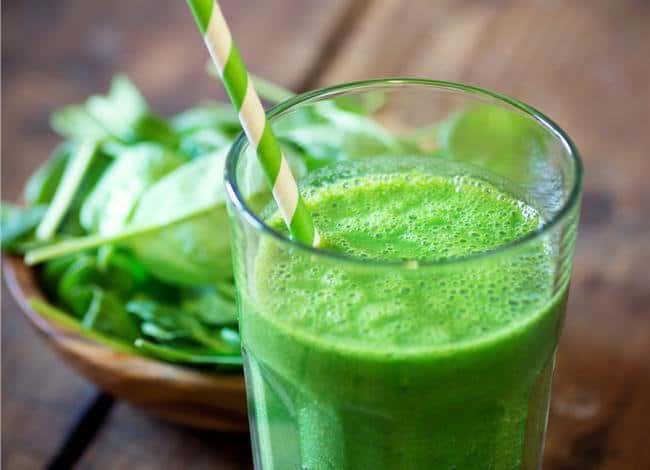
Aloe Vera has been regarded for centuries as a common cure for many ailments. In the 1800’s, aloe vera was used in the US as a treatment for constipation, and in the 1930’s it was used as a topical treatment for dermatitis.
Aloe vera is thought to have about 75 active compounds that may offer potential health benefits. Aloe is mostly water but also contains vitamins, minerals, enzymes, anthraquinones (act as laxatives), fatty acids, amino acids and hormones.
Drinking aloe vera juice is associated with many health benefits including: promoting digestive health, supporting the immune system, a source of antioxidants and promoting skin health.
While there are many health claims associated with aloe vera juice, scientific research backing up these health claims is lacking.
In fact, some research studies have shown that aloe vera may be potentially harmful.
As with any supplement, the way aloe vera juice influences the body can be influenced on how the supplement product is made, the purity of the supplement and the source and quality of ingredients.
The guidelines for producing supplements are not regulated by the FDA. Before adding aloe vera juice, or other aloe vera products, to your diet, consult your health care team.
Health benefits
Aloe vera contains anti-septic properties that could possibly help the immune system fight off certain bacteria and viruses.
It also may contain some antitumor properties. Aloe vera juice is a potential source for antioxidants vitamins A,C and E and minerals calcium, magnesium, zinc, copper, manganese and potassium.
Aloe vera juice is often associated with promoting skin health because it is high in antioxidants and may offer protection to skin from radiation from the sun.
The anthraquinones in aloe vera act as a laxative by increasing intestinal water content and stimulating the passing of food through the intestines.
While there are many potential health benefits associated with aloe vera juice, keep in mind research substantiating these claims is lacking.
More research is needed to further understand the effect consuming aloe vera juice has on the body.
Mayo Clinic (1) suggests consuming aloe vera juice could also have some potential side effects listed below.
Increase risk of bleeding
Drinking aloe vera juice could increase risk of bleeding in some individuals with bleeding disorders or on medication that effects bleeding risk.
Therefore, caution should be used before consuming aloe vera juice if you have a bleeding disorder or at risk for bleeding disorders.
Allergy concerns
What may come as a surprise to people is aloe vera is in the same family as garlic, onions and tulips.
Therefore, if someone is allergic to garlic or onions, consuming aloe vera products could cause an allergic reaction.
GI health or distress?
Consuming aloe vera products can be associated from various health websites for improving digestive health.
Over the counter laxatives used to contain aloe vera, but since 2002 the FDA has banned the use of aloe vera in over the counter laxatives (2).
Even though aloe vera can be associated with improving digestive health, some people could have a negative reaction with aloe products.
Aloe vera juice could actually cause stomach cramping, diarrhea or constipation in some people. Aloe vera should not be taken as an anecdote for severe abdominal pain, blocked bowel.
If someone has liver or kidney disease, aloe vera should not be ingested (3).
Aloe vera has been used for centuries as an aide for digestion, so why would there be a concern of negative side effects from aloe vera on digestive health?
The way aloe vera juice is processed could have a different effect than how aloe vera was used for previous centuries. Other individual health conditions may also affect how aloe vera interacts with the body.
Blood sugar concerns
A side effect of aloe vera juice is it may lower blood sugar levels. Taking aloe vera juice along with other supplements or prescriptions that lower blood sugar levels could be harmful.
If you take anything to help control blood sugar levels, be sure to talk with your physician before taking aloe vera juice.
Aloe juice and pregnancy
It is not recommended for pregnant women to consume aloe vera juice. Ingesting aloe vera juice may increase risk for contractions of the uterus.
Topical application for aloe vera should be safe during pregnancy, but speak with your physician first for individual recommendation.
Cancer concerns
A two year study from the National Toxicology Program (4) looked at the effect whole leaf aloe vera extract would have in rats.
Researchers found an increased risk of colorectal cancer in rats receiving the aloe vera extract. More research is needed in humans to see if it would have the same effect.
However, this study does raise some concern if aloe vera products could lower risk or increase risk for certain cancers.
Conclusion: Is Aloe vera juice safe?
Aloe vera juice does have some beneficial nutrients such as vitamins, minerals and compounds that have anti-septic and antitumor properties.
However, even though many health benefits are associated with aloe vera juice, there is little if any research to back up health claims of aloe vera juice. Therefore, caution should be used.
Aloe vera has the possibility of interacting with many different medications and affecting certain health conditions.
Therefore, it is recommended to consult your healthcare team before consuming it. It is generally regarded as safe for applying aloe vera as a topical ointment on unbroken skin, but ingesting it could have some side effects.
Another concern for ingesting aloe vera products is the purity and safety of supplements is not well regulated.
How the aloe vera products and the quality of these products can vary greatly.
If you do want to try using aloe vera juice, it is recommended to find an organic, high quality filter juice that does not have artificial flavors or ingredients added.











